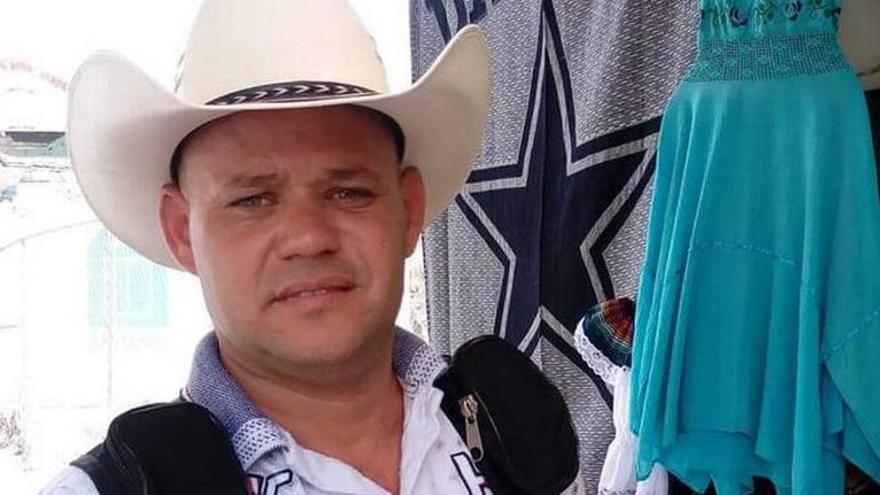
![]() 14ymedio, Havana, October 16, 2019 — A Cuban migrant has committed suicide in the United States after five months in detention awaiting a hearing on political asylum. The Immigration and Customs Enforcement Service confirmed that Roylán Hernández Díaz, 43, killed himself Tuesday afternoon at the Richwood Correctional Center in Louisiana.
14ymedio, Havana, October 16, 2019 — A Cuban migrant has committed suicide in the United States after five months in detention awaiting a hearing on political asylum. The Immigration and Customs Enforcement Service confirmed that Roylán Hernández Díaz, 43, killed himself Tuesday afternoon at the Richwood Correctional Center in Louisiana.
Several family members have told El Nuevo Herald that Hernández was afraid of being deported to Cuba and was being held in an isolation area known as “the pit” at the time of his death.
“The preliminary cause of death appears to be self-inflicted strangulation; however the case is currently under investigation. In accordance with the agency’s protocols, the appropriate agencies have been notified about the death, including the Office of the Inspector General of the Homeland Security Department and the Office for Professional Responsibility,” the U.S. Immigration and Customs Enforcement agency (ICE) said in a statement sent to various media outlets.
Hernández had recently appeared in immigration court and, according to relatives, had told security guards that he would leave the detention center “alive or dead.”
“He was afraid of being deported to Cuba. He had recently been given another court hearing date. The people inside are desperate,” said one relative.
According to the ICE statement Hernández and his wife crossed the border on May 18 at El Paso, Texas. Fellow inmates report that he began a hunger strike to protest conditions at the detention facility.
“They had hopes of being freed or at least released as paroled, but months went by and they were still in detention. In Louisiana detainees face very bad conditions. They are treated badly and the authorities don’t believe they have been politically persecuted,” said one relative who requested anonymity out of fear of reprisal.
In September, another Cuban immigrant, Osleivy Carnival, sewed his mouth shut in protest after learning that he had been denied political asylum. Under the Trump administration, more than 800 Cubans have been deported to the island, many of them subject to expedited removal after having lost their cases in immigration courts.
“Roylán’s cellmates have decided to stage a sit-in to protest his death and the poor conditions for detainees. We are desperate and have received no news about what’s happening with them. We need someone to listen to us,” added another relative.
“ICE is firmly committed to the health and well-being of everone in its custody and is undertaking an extensive agency-wide review of this incident, as it does in every case. Deaths in ICE are extremely rare,” added the agency in its statement.
Recently, the Office of Customs and Border Protection (CBP) announced that, as of August 2019, at least 20,700 Cubans had arrived at the U.S. border with Mexico, triple the 7,079 who had arrived in the same period last year.
The flood of migrants coincides with a resurgence of repression on the island as well as an economic crisis but also with Washington’s more restrictive immigration policies.
“The Cuban economy is on the verge of a new Special Period. That, along with the suspension of programs such as Cuban Family Reunification and the parole program, has complicated the immigration situation enormously,” says immigration attorney Alejandro Vazquez by phone from Miami.
Since Donald Trump became president, there has been an increase in the number of Cubans being repatriated after being denied asylum. According to recent figures published by the Associated Press, more than eight-hundred Cubans have been returned to the island, even after expressing fear of being persecuted by authorities.
___________________
The 14ymedio team is committed to practicing serious journalism that reflects Cuba’s reality in all its depth. Thank you for joining us on this long journey. We invite you to continue supporting us by now becoming a member of 14ymedio. Together we can continue transforming journalism in Cuba.
